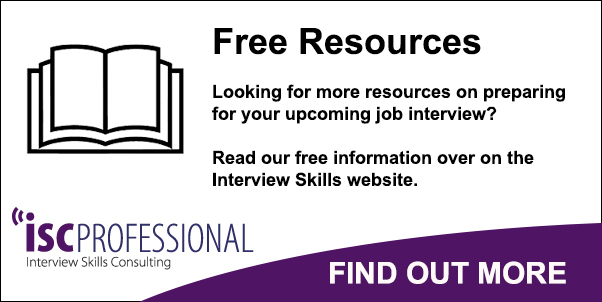Common Tricky Interview Questions and How to Answer
After perfecting your CV, crafting a winning covering letter, and beating other candidates to the crucial moment, you may find yourself feeling nervous about your upcoming interview.
Whether you are a fresh-faced graduate or looking to progress in your current company, it’s natural to feel nervous. It’s rare that any interview candidate lands the job without investing in a little preparation, so now’s the time to confront some of those tricky interview questions in order to present your best self.
Below you’ll find some of the more tricky interview questions that commonly pop up within interviews.

Why should I hire you?
The secret to answering this question in a way that’ll impress the interviewers is to research the company and the role. They want to see how your skills and attributes fit the job description, and nothing is a bigger turn-off than walking in there without having done your homework. To ensure your response tallies with your CV and covering letter, read through both of them and pick three to five points that you can use when answering. Always remain concise, and if possible inject examples of times you’ve fulfilled similar roles.
Tell me about a time when you have managed a tricky situation
Rather than feeling nervous about this question, see it as the perfect opportunity to illustrate when you’ve stepped outside of your comfort zone and flourished. When answering any question that starts with ‘tell me about a time’, you need to follow a set matrix. Highlight the situation, how you responded to it, and the outcome. If the interviewers feel as though you need to expand, or if they want to gauge your reaction to the dilemma, they may ask how you felt afterwards. Try to avoid overly negative language when responding. For example, rather than stating you felt ‘angry’, say that you were ‘disappointed’ then explain how you felt the outcome was positive overall.
What would you say your biggest weaknesses are?
While it may seem tempting to answer that you lack weaknesses, this isn’t an impressive response. This question swiftly reveals the character flaws that make you an obvious bad fit for the job, but that doesn’t mean you need to feel nervous about it. See it as a chance to highlight one of your strengths. For example, if your CV makes it clear that you’re a fan of remaining organised, highlight this quality again and say that this sometimes means you find yourself thrown off guard when there is a sudden change in workplace routines or dynamics. However, don’t leave it there. Close your statement by saying how each time you are forced to change your approach you always seize the opportunity to learn new skills.
Tell me about a time when you’ve received developmental feedback
Any question that asks you to reveal your response to criticism or developmental feedback aims to unearth your ability to take direction. Before going into the interview, think of a time when your best efforts were highlighted as not being quite good enough, then find a way to show your interviewers how you responded to the feedback by enhancing your skills. Again, remember not to respond with overly negative words if they choose to ask you how the feedback made you feel.
If you’re still feeling unnerved by the interview process, you’re fresh out of education and looking for your first job, or you’re seeking ways to help your employees progress, help is at hand.
Whether you’re a confident interviewee or overwhelmed with nerves, you can use one-to-one interview coaching to help you draw on your best skills, or you can read more answers to common questions on our site.





